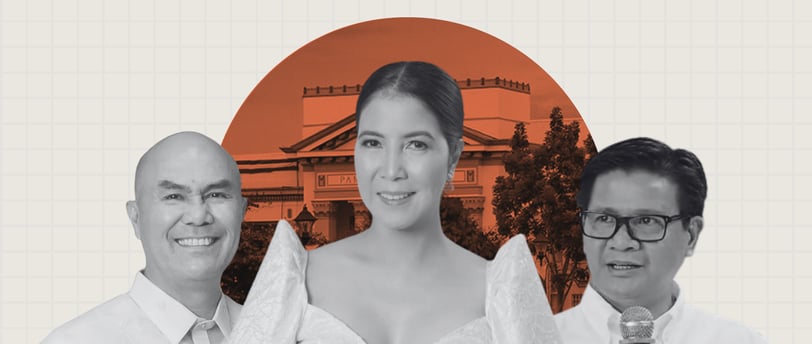From Sanitation Cash to Sky Politics: The Empire Strikes Back in Pampanga
EXPLAINERISSUE


A fierce political reckoning is unfolding in the heart of Central Luzon, where the influential figure of Rodolfo “Bong” Pineda casts a long and controversial shadow over Pampanga’s local governance. As Pineda intensifies efforts to cement his control, a wave of resistance is gaining traction, fueled by a growing sense that power is being wielded not for public service, but for political domination.
At the epicenter of this storm is San Fernando Mayor Vilma Caluag, who now faces a formal complaint filed by the Commission on Elections (Comelec) for alleged vote-buying during the 2023 Barangay and Sangguniang Kabataan elections. The charges, which also implicate her husband, Melchor Caluag, and barangay councilor candidate Julmar Mercado, revolve around the alleged distribution of cash, disguised as payouts from a sanitation program, to sway voters. If proven, the case could have wide-reaching implications for Caluag’s political future and credibility.
In Mabalacat City, embattled Mayor Crisostomo Garbo is also navigating legal headwinds. A local councilor has asserted that a case against the mayor remains unresolved, raising questions about accountability, transparency, and the timing of renewed scrutiny.
Further west in Porac, Mayor Jaime “Jing” Capil is fending off allegations linking his administration to the protection of Philippine Offshore Gaming Operators (POGOs). Capil has firmly denied these claims, stating his governance is rooted in transparency and the rule of law. Yet, doubts linger, exacerbated by political undercurrents and broader concerns about corruption and illicit economies.
Observers note that these simultaneous legal and reputational challenges faced by three of Pampanga’s most prominent local officials may not be coincidental.
Behind the scenes, sources allege a well-orchestrated strategy by Rodolfo “Bong” Pineda, a long-standing political kingmaker in the province, to sideline potential rivals and unify power under his faction. Pineda, known for his deep-rooted influence in both political and business circles, has reportedly employed unusual means to rally support, including the use of helicopters to court local leaders and reinforce loyalty.
“This isn’t just politics as usual,” said a Pampanga-based political analyst who requested anonymity for fear of reprisal. “It’s a calculated consolidation of power. Legal actions are one part of it, but the real goal is control—absolute and unchallenged.”
The timing of these legal offensives has raised eyebrows among civil society groups, who warn that the weaponization of state mechanisms for political gain threatens democratic norms and public trust.
Grassroots resistance is quietly emerging. Citizens, youth groups, and civic leaders are beginning to speak out, questioning the motivations behind these high-profile cases and demanding transparency in both prosecution and governance. Social media platforms have become battlegrounds for narratives—some championing “cleansing the system,” others calling out what they see as targeted harassment cloaked in legality.
As Pampanga’s political landscape continues to shift, the unfolding saga of Caluag, Garbo, and Capil is shaping up to be more than a series of legal dramas—it is a referendum on the future of local democracy in the region. Will power continue to concentrate in the hands of the few? Or will resistance give rise to a new era of accountability and pluralism?
Only time—and the will of the people—will tell.
